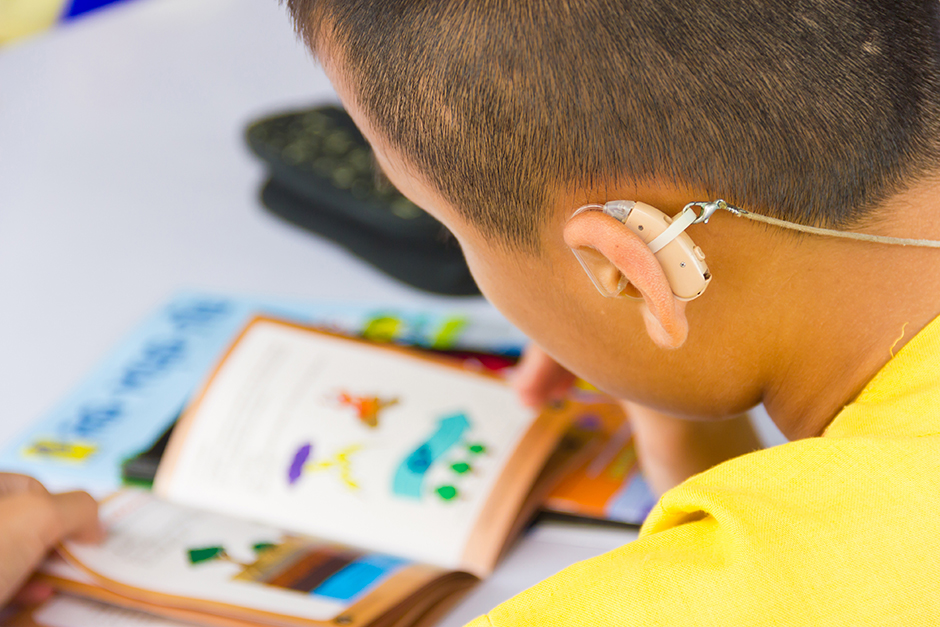Assistant Professor Dr. Lynn Perry and Professor Dr. Daniel Messinger in the University of Miami College of Arts and Sciences Department of Psychology have been awarded federal funding to study the development of children with hearing loss at UM’s Debbie Institute, which is affiliated with Mailman Center for Child Development.
“Recently funded awards will provide us with a greater understanding of children with hearing loss so that we can develop improved educational strategies and interventions to be applied during the critical years of early learning establishing a foundation for lifelong success,” says Kathleen C. Vergara, director of the Debbie Institute.
Children with hearing loss are less likely to read at grade level than their typically hearing peers—a gap that exists as early as preschool.
In a new grant funded by the National Institute of Deafness and Other Communication Disorders (NIDCD), Perry, along with collaborators at University of Washington, Washington State University, and Rush University Medical Center, will investigate predictors of emerging literacy skills in preschoolers with and without hearing loss. Perry will lead the UM team to study these language and literacy skills in 3- to 5-year-old children attending the UM Debbie School.
In a parallel line of work focused on social interactions of preschoolers with hearing loss, Messinger and Perry were awarded an additional grant also funded by NIDCD. In this project, known as the Interactive Behavior in Schools (IBIS), the team will conduct monthly classroom observations at the UM Debbie School.
Children are outfitted with customized vests containing recorders and radio frequency identification (RFID) tags to measure children’s location and vocalizations to help researchers understand the role interactions with teachers and peers can play in supporting the language development of children with hearing loss.
“These projects will, for the first time, shed light on day-to-day, hour-to-hour, and minute-to-minute interactions that promote the social and linguistic development of children with hearing loss and promote their ultimate academic success,” says Perry.

